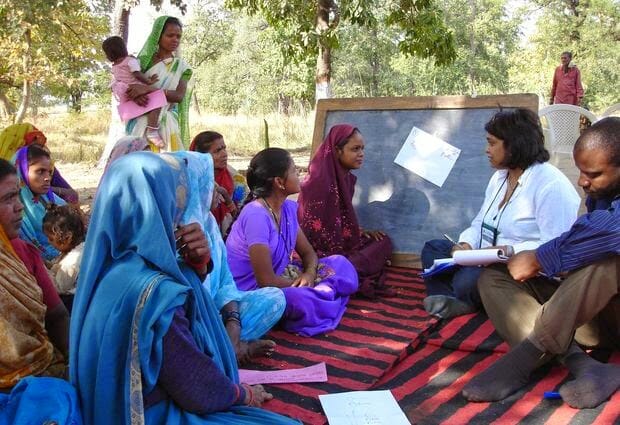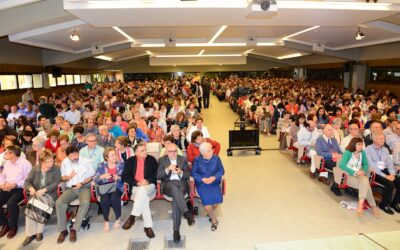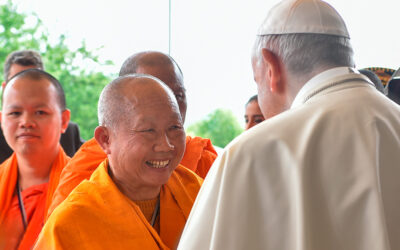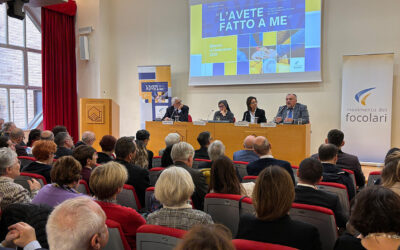 While gender is the topic under discussion in the Western world, in developing countries the concern is for the tragedy of exploitation; in the Middle East the rights of women, and peace. Still in the West, women forced to choose between work and family; lives that are subjected to violence… These are a few of the challenges and problems – differing according to the various geographical areas – in discussion at the United Nations, in view of the new agenda for the Sustainable Development Goals, to be carried out after the year 2015 (the date by which the 193 member states hoped to achieve the famous Millennium Development Goals). These challenges and problems were also discussed during the three days sponsored by the Pontifical Council for Justice and Peace (Rome, May 22-24, 2015), in collaboration with the World Union of Catholic Women’s Organizations and the World Women’s Alliance for Life and Family. Not only an overview of the most urgent issues linked to woman’s conditions, nor a mere moment of condemnation of the violations of her dignity and her rights. The 120 women from different countries wanted to offer a contribution of experiences and ideas, then synthesized in a final document towards the new United Nations Post-2015 Development Agenda. In his message to Cardinal Turkson, president of Justice and Peace, Pope Francis wanted to give voice to the petitions promoted by the Catholic feminine world in international proceedings, inviting those who are “engaged in defending the dignity of women and promoting their rights,” to allow themselves “to be constantly guided by the spirit of humanity and compassion” in the service of their neighbours. “In this way,” continues the pope, “you will manifest the countless God-given gifts which women have to offer, encouraging others to promote sensitivity, understanding and dialogue in settling conflicts big and small, in healing wounds, in nurturing all life at every level of society, and in embodying the mercy and tenderness which bring reconciliation and unity to our world.” The contributions ranged from: feminine anthropology, women and education, women and interreligious dialogue, technologies related to life and to procreation, human rights, women and agricultural work, to business and finance etc., followed by work in thematic atelier, or workshops (a term which recalls the “artisan work” of finesse and industriousness, typical of women) on the Sustainable Development Goals, for an elaboration of proposals. Rita Mousallem, co-director of the Centre for Interreligious Dialogue of the Focolare Movement, spoke on the subject of “Interreligious Dialogue, means for a lasting peace. The roll of women,” taking inspiration from her personal experience as a Christian in the Middle East. In the various interviews to which she responded, she stressed the ability to listen, a typical characteristic of women, which provides the possibility to enter into the innermost part of oneself and of others; to know how to suffer and how to hope until the end, because – being a mother – she well knows the value of life. These aspects and others are part of that “feminine genius” – also quoted by Pope Francis – the gift and beauty typical of woman, called to give her contribution to today’s society, for the benefit of all. Read more: Aleteia
While gender is the topic under discussion in the Western world, in developing countries the concern is for the tragedy of exploitation; in the Middle East the rights of women, and peace. Still in the West, women forced to choose between work and family; lives that are subjected to violence… These are a few of the challenges and problems – differing according to the various geographical areas – in discussion at the United Nations, in view of the new agenda for the Sustainable Development Goals, to be carried out after the year 2015 (the date by which the 193 member states hoped to achieve the famous Millennium Development Goals). These challenges and problems were also discussed during the three days sponsored by the Pontifical Council for Justice and Peace (Rome, May 22-24, 2015), in collaboration with the World Union of Catholic Women’s Organizations and the World Women’s Alliance for Life and Family. Not only an overview of the most urgent issues linked to woman’s conditions, nor a mere moment of condemnation of the violations of her dignity and her rights. The 120 women from different countries wanted to offer a contribution of experiences and ideas, then synthesized in a final document towards the new United Nations Post-2015 Development Agenda. In his message to Cardinal Turkson, president of Justice and Peace, Pope Francis wanted to give voice to the petitions promoted by the Catholic feminine world in international proceedings, inviting those who are “engaged in defending the dignity of women and promoting their rights,” to allow themselves “to be constantly guided by the spirit of humanity and compassion” in the service of their neighbours. “In this way,” continues the pope, “you will manifest the countless God-given gifts which women have to offer, encouraging others to promote sensitivity, understanding and dialogue in settling conflicts big and small, in healing wounds, in nurturing all life at every level of society, and in embodying the mercy and tenderness which bring reconciliation and unity to our world.” The contributions ranged from: feminine anthropology, women and education, women and interreligious dialogue, technologies related to life and to procreation, human rights, women and agricultural work, to business and finance etc., followed by work in thematic atelier, or workshops (a term which recalls the “artisan work” of finesse and industriousness, typical of women) on the Sustainable Development Goals, for an elaboration of proposals. Rita Mousallem, co-director of the Centre for Interreligious Dialogue of the Focolare Movement, spoke on the subject of “Interreligious Dialogue, means for a lasting peace. The roll of women,” taking inspiration from her personal experience as a Christian in the Middle East. In the various interviews to which she responded, she stressed the ability to listen, a typical characteristic of women, which provides the possibility to enter into the innermost part of oneself and of others; to know how to suffer and how to hope until the end, because – being a mother – she well knows the value of life. These aspects and others are part of that “feminine genius” – also quoted by Pope Francis – the gift and beauty typical of woman, called to give her contribution to today’s society, for the benefit of all. Read more: Aleteia
Circulate positive ideas!
Circulate positive ideas!




0 Comments